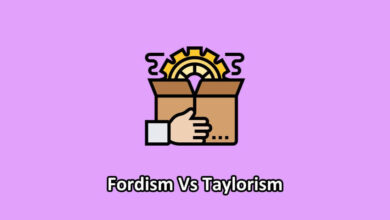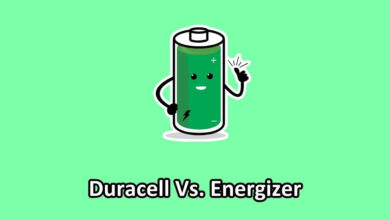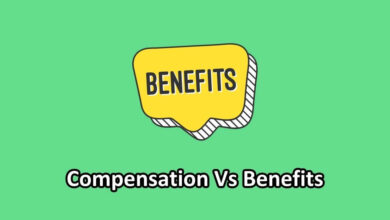In today’s globalized world, it has become easier than ever to travel across borders for work, study, or leisure. However, before you embark on your journey, it is essential to understand the different travel documents that are required. The two most crucial documents that are required for international travel are a passport and a visa. So, in this article, we will explore the differences between a passport and a visa, how to obtain them, and the key differences between the two.
Passport Vs Visa (Comparison Table)
| Passport | Visa |
|---|---|
| A passport refers to an official document issued by a government that serves as a primary form of identification and allows travel between countries. | A visa refers to an endorsement or permission granted by a government that allows a foreign national to enter, stay, or leave a country for a specified period. |
| It serves as a primary form of identification and proof of citizenship. | It grants permission to enter a foreign country |
| A passport is a legal document. | It is a stamped document. |
| A passport includes the address nationality, occupation, and photo of a holder. | It includes the date of birth, visa application, official visa site, etc. |
| It is valid for a specific period and mus be renewed if expired. | It is valid for a specific period and must be renewed if you wish to stay in the foreign country for an extended period. |
| A passport is issued by the government of the country you belong to. | It is issued by the representative officials you are willing to visit. |
| The different types of passports are: regular, special, diplomatic, and services passports. | There are different types of visas like, student visa, visit visa, residency visa, and employment visa. |
What is a Passport?
A passport is an official government document that certifies your identity and citizenship. It serves as a primary form of identification when you are traveling abroad. A passport contains your personal details, including your name, date of birth, photograph, and signature. Additionally, it includes other essential information such as your passport number, expiration date, and the issuing country.
How to Get a Passport?
The process of obtaining a passport can vary depending on your country of origin. In most cases, you will need to visit your country’s passport office or embassy to submit your application. You will also need to provide several documents, such as your birth certificate, proof of citizenship, and a recent photograph. Additionally, you will need to pay a fee to obtain your passport.
Once you have submitted your application and paid the required fee, it can take several weeks to receive your passport. Therefore, it is essential to plan ahead and apply for your passport well in advance of your travel date.
What is a Visa?
A visa is a travel document that allows you to enter and stay in a foreign country for a specific period. Unlike a passport, a visa is not a form of identification, but rather a form of permission to enter a foreign country. The requirements for obtaining a visa can vary depending on the country you plan to visit and the purpose of your travel.
In addition, there are several types of visas, including tourist visas, work visas, study visas, and transit visas. Each visa has its specific requirements, and it is essential to ensure that you apply for the correct type of visa for your intended purpose.
How to Get a Visa?
The process of obtaining a visa can be more complicated than obtaining a passport. The requirements for obtaining a visa can vary depending on the country you plan to visit and the purpose of your travel. In most cases, you will need to visit the embassy or consulate of the country you plan to visit to submit your visa application.
You will also need to provide several documents, such as your passport, proof of financial means, and a letter of invitation (in some cases). Additionally, you may need to undergo a medical examination or provide a police certificate. Like a passport, you will need to pay a fee to obtain your visa.
Also, the processing time for a visa can also vary depending on the country you plan to visit. In some cases, you may be able to obtain a visa on arrival at your destination. However, it is essential to research the requirements for obtaining a visa well in advance of your travel date to avoid any last-minute complications.
Key Differences between Passport and Visa
While comparing both passport vs visa, let’s have a look at some of the key differences between them.
- Purpose: The primary purpose of a passport is to certify your identity and citizenship. A passport is required to enter and exit a country and serves as a form of identification when you are traveling abroad. In contrast, the primary purpose of a visa is to grant permission to enter a foreign country. A visa is required in addition to a passport and allows you to stay in a foreign country for a specific period.
- Validity: A passport is valid for a set period, typically five or ten years, and must be renewed once it expires. In contrast, a visa is valid for a specific period, which varies depending on the type of visa and the country you plan to visit. In most cases, a visa is valid for a specific period and must be renewed if you wish to stay in the foreign country for an extended period.
- Application process: The application process for obtaining a passport is typically less complicated than obtaining a visa. You need to provide essential personal information, such as your name, date of birth, and citizenship, and submit the required documents to your country’s passport office or embassy. On the other hand, the application process for a visa can be more complex, and you may need to provide additional documents, undergo a medical examination, or provide a police certificate, depending on the country you plan to visit.
- Cost: The cost of obtaining a passport is typically less than the cost of obtaining a visa. The cost of a passport varies depending on your country of origin and the type of passport you require. In contrast, the cost of a visa varies depending on the country you plan to visit, the type of visa you require, and the duration of your stay.
- Flexibility: A passport provides more flexibility in terms of travel. With a valid passport, you can travel to several countries without the need for a visa, depending on your country of origin. In contrast, a visa is specific to a particular country and limits your travel options.
The following table also shows the differences between passport and visa.

You Can Also Read:
- Difference Between Consulate and Embassy
- Difference Between Newspaper and Magazine
- Difference Between Degree and Diploma
Conclusion:
In conclusion, a passport and a visa are two essential travel documents required for international travel. A passport serves as a primary form of identification, while a visa grants permission to enter a foreign country. While the application process for a passport is typically less complicated than obtaining a visa, the cost of obtaining a visa can vary depending on the country you plan to visit and the type of visa you require.
Also, it is essential to research the requirements for obtaining a passport and visa well in advance of your travel date to avoid any last-minute complications. By understanding the differences between a passport and a visa, you can ensure that you have the correct travel documents and enjoy a hassle-free travel experience.
You Can Now Also Get a Visa:




2 Comments